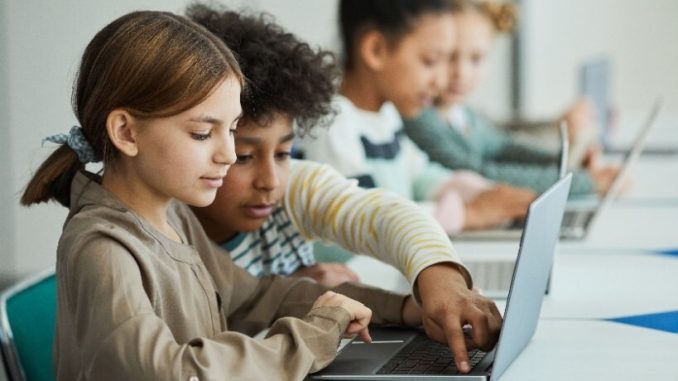
In today’s technology-driven world, some people call coding the “new way of reading.”Just as reading, writing, and arithmetic once served as a fundamental education, in this 21st century we are finding that – increasingly – programming is needed too. But why does anyone seeking any career need to learn programming?To resolve this, we must chart the alteration in thinking. We examine the stages when programming changed from being only icing on a wealthy person’s occupational cake to an indispensable knowledge in an information society.The Definition of Literacy is Expanding
To be literate traditionally meant the ability to read and write–in essence, master a language. However, the definition expanded to embrace digital literacy : using digital technology evaluate, understand, and create content. Coding, as the language of machines, forms an essential component for digital literacy itself. It allows us to not only use but converse with, control and construct digital tools. This transformation means that being conversant in technology is as necessary as understanding language and doing arithmetic.
Why Coding Is Necessary for All Students
A Universal Skill in the Digital Economy
The digital economy has penetrated nearly all industries. It is used for everything from fresh vegetables and fruit to healthcare. Where twenty years ago being able to use Microsoft Office was an exceedingly useful skill, today basic coding abilities are as basic. With an understanding of programing principals, students who go on to careers in marketing, design or engineering are uniformly better off. Even non-technical positions get a boost when employees know how algorithms work and some basics about data structures.
Promotes Problem Solving and Critical Thought
The key to programming isn’t really typing dusty lines of code, but the ability to logically solve problems. By learning programming, students can also gain computational thinking, which is the capability to analyze problems complexly and methodically. This way of thinking is not only useful for technical matters, but also any general problem in the real world. Promotes Creativity and Innovation
Students can use programming as a tool to turn their ideas into reality–be it a mobile app, website or AI chatbot. This power of creation becomes a catalyst for innovation. Through coding, students learn to try, fail, and then try again. This cycle of renewal each time it occurs is essential for any imaginative work. Provides Students with Future Employment
The World Economic Forum foresees that in 2025, jobs requiring digital and technical skills will account for the most employment opportunities. Whole industries are being altered by automation, big data and artificial intelligence. In the face of progress, students will need to learn coding and programming if they do not want to be left behind by it. Coding for Everyone—Breaking Stereotypes
Coding is thought only of those who are geeky or in the computer science business rather than general public. As a matter of fact, programming languages like Scratch and Python were both made by non-specialist learners grown to full-scale tools which beginners could use. Schools all over the Earth are teaching little kids in elementary grades how to program: this is bound to detract from the superstition surrounding computer languages and make for their widespread use by everyone.
It has been hard to see any gender, national origin or economic background. Skills in coding aren So-far isolated development initiatives such as Girls Who Code and Code.org represent efforts to make coding fair to all and inclusive A revolutionary transformation into which everyone can join.
Integrating Coding into Schools
Education systems need to adapt more forcefully to future technology-driven development if they are going to teach children the skills they need to survive. Here are two ways of getting coding into schools.
Curriculum Development: Put coding into core education programs, at the same time as other subjects like mathematics and science.
Cross-Disciplinary Projects: Integrate coding across different disciplines, using visual representations to teach history or experimental science.
Teacher Training: Provide teachers with the right skills and materials to effectively teach programming.
Partnerships with Tech Companies: Work with industry leaders to offer students a head start by providing internship programs and guidance in the field.
In Conclusion: Empowering the Next Generation
Coding is not just a technical skill. It s a tool for empowerment, creativity and innovation. Teaching programming has two benefits. First, it enables people to write software that will make their lives easier Second, is the way of thinking needed by anyone faced with a complex problem: they break it down into smaller ones. If we hope to bridge digital divides and encourage the poor to join world economies of today, then coding can help us. And only by arming young people with such a new skill will society continue to develop in which knowledge is outdated:
The real question is whether coding ought to be taught in fact–not when and why we need make it accessible for as many people as possible, but starting far back than any of us can remember so that it make sense in Life like learning how to read and write. This way, coding really is transforming into the new literacy.